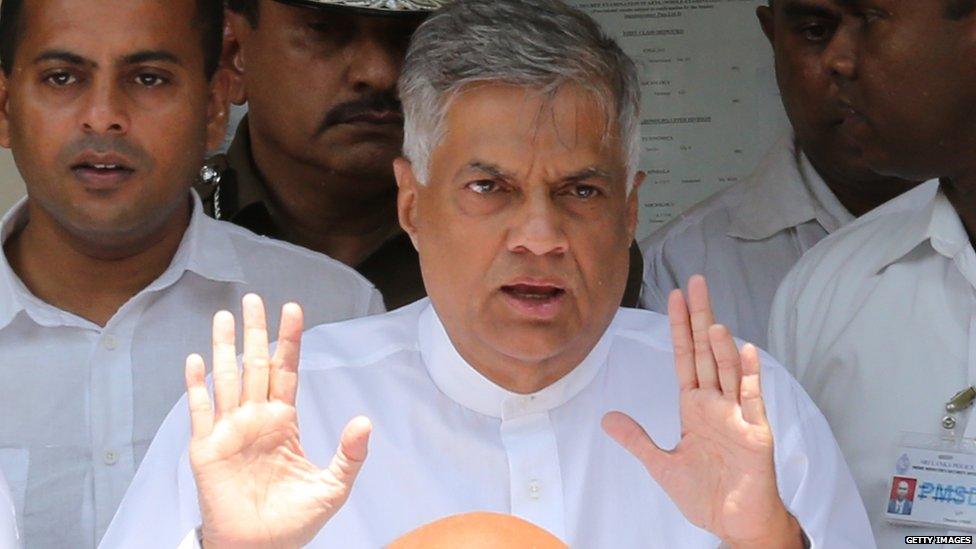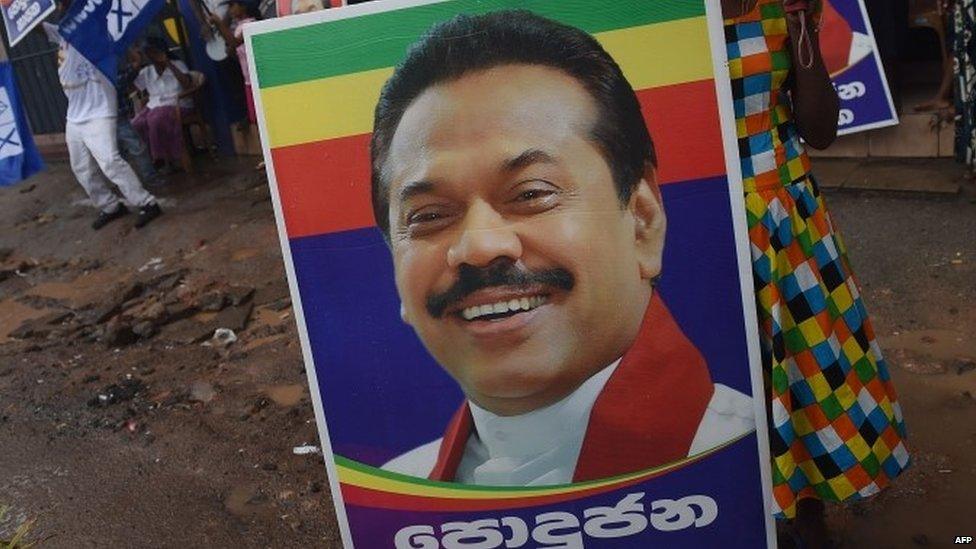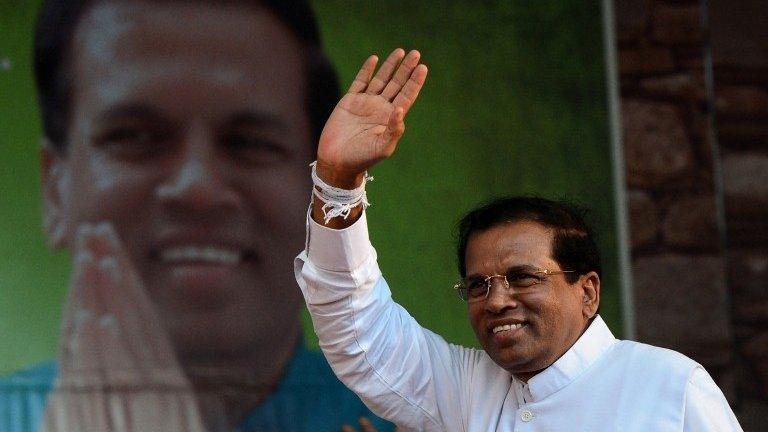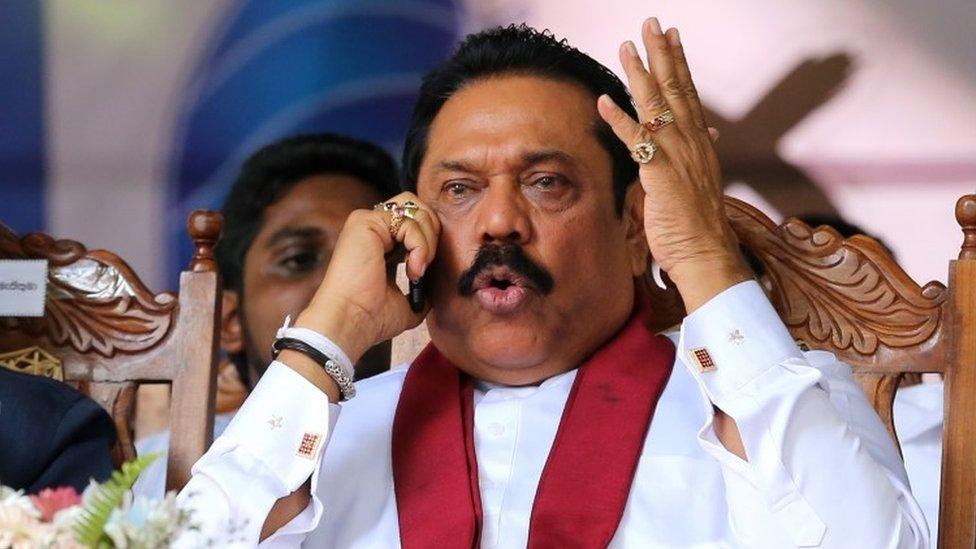Sri Lanka elections: UNP victory as Rajapaksa hopes rebuffed
- Published

Ranil Wickremesinghe's UNP party looks set to form a unity government
Sri Lanka's ruling United National Party has won the most seats in the island's parliamentary elections, blocking former President Mahinda Rajapaksa's attempt to return to power.
The UNP doubled its number of seats in parliament to 106, while Mr Rajapaksa's United People Freedom Alliance took 95.
The result gives the UNP enough seats to form a coalition with its allies.
Turnout in Monday's polls was high, in what was widely seen as a referendum on Mr Rajapaksa.
Prime Minister and UNP leader Ranil Wickremesinghe said: "The majority of this country have voted to consolidate the gains of the 8 January revolution."
"Now it is no longer necessary to be divided as winners and losers. We need to unite as one family to create a new political culture in this country."
Mr Rajapaksa won his seat as MP - but the results mean he will be staying on the opposition benches.
Setback
Mr Rajapaksa lost the presidency in January to his former Health Minister, Maithripala Sirisena.

Mr Rajapaksa remains popular with much of the Sinhalese community
He ran as a parliamentary candidate for the UPFA in Monday's elections - hoping to secure enough support to force President Sirisena to name him as prime minister.
Although Mr Rajapaksa and Mr Sirisena both belong to the UPFA, the two men are rivals and lead opposing factions in the UPFA.
Mr Sirisena's allies are expected to join the UNP in a national unity government, giving the UNP enough seats for a majority.
Correspondents say the UNP also enjoys a better relationship with two smaller parties - the Tamil National Alliance and the leftist JVP (Janatha Vimukthi Peramuna), which took 16 and six seats respectively.
- Published14 August 2015

- Published21 November 2019

- Published10 August 2015